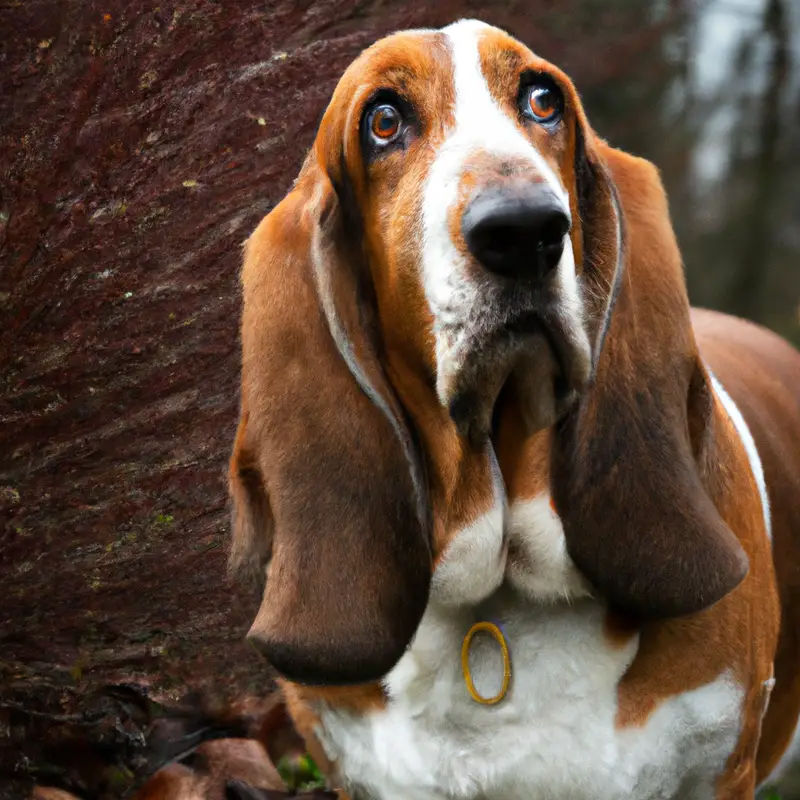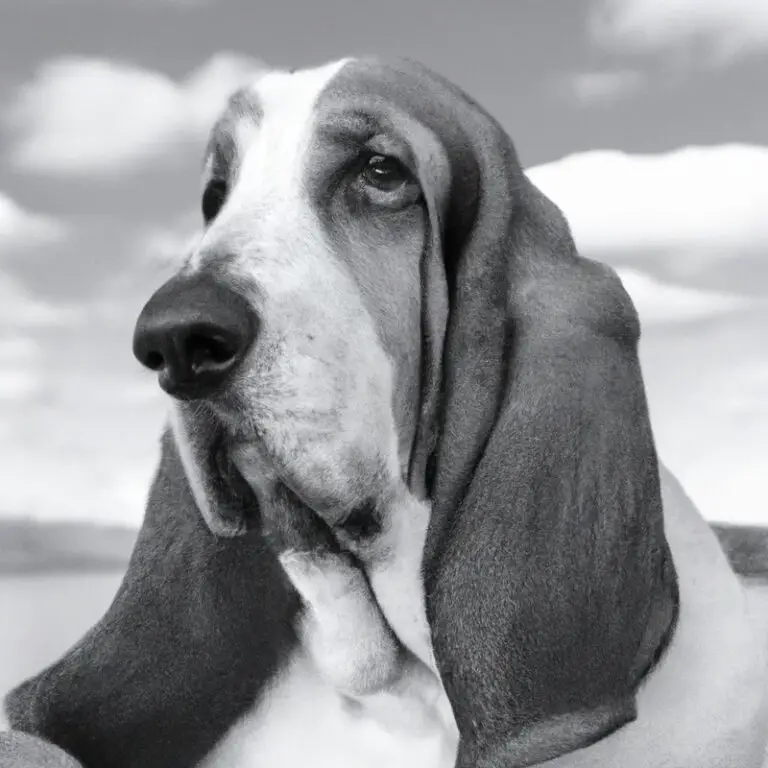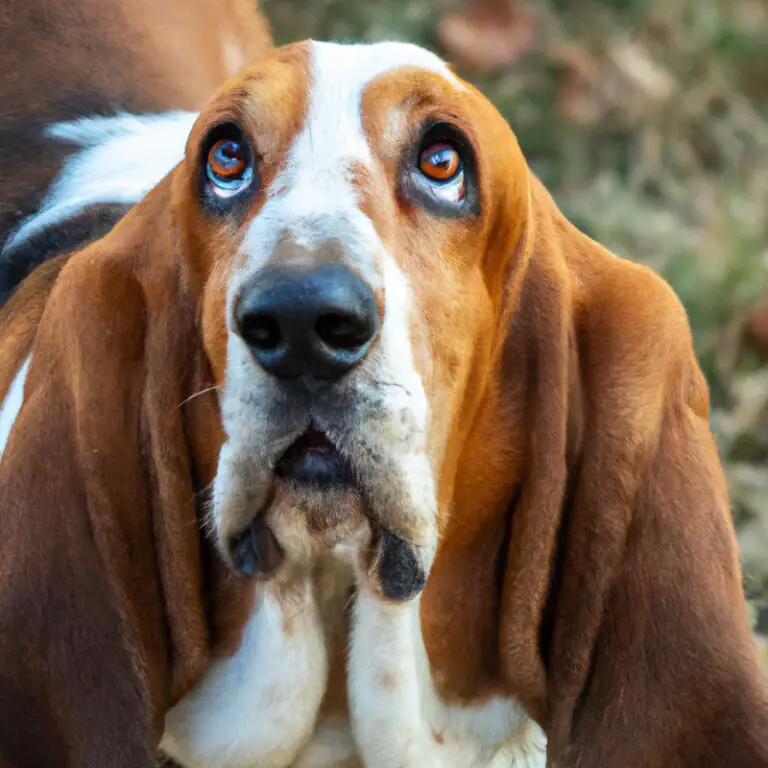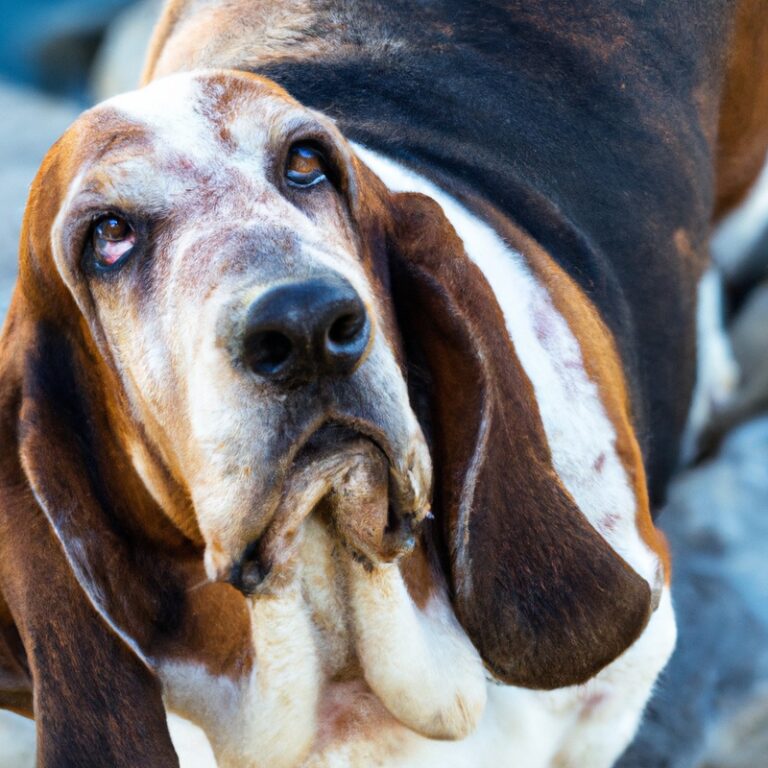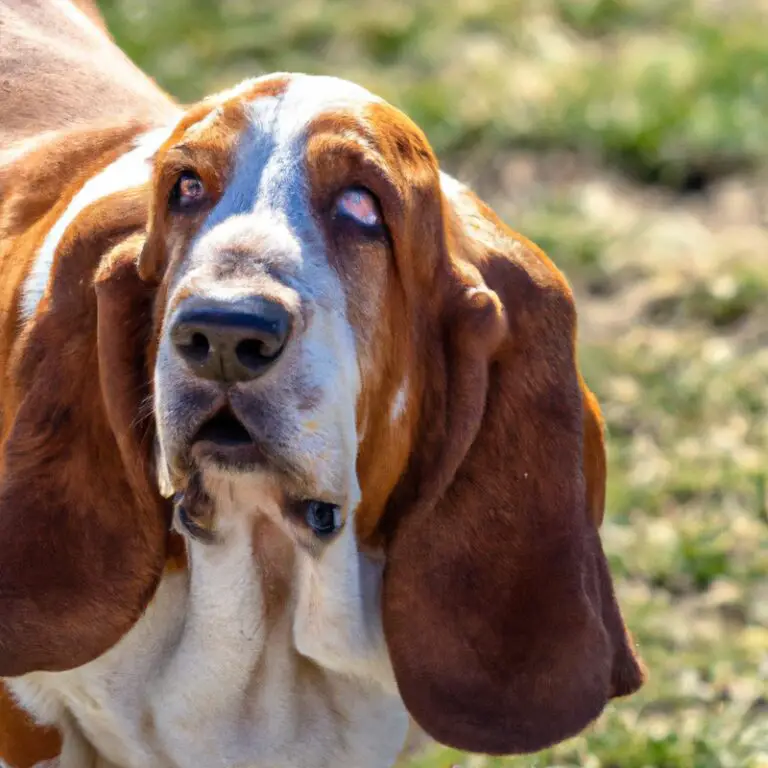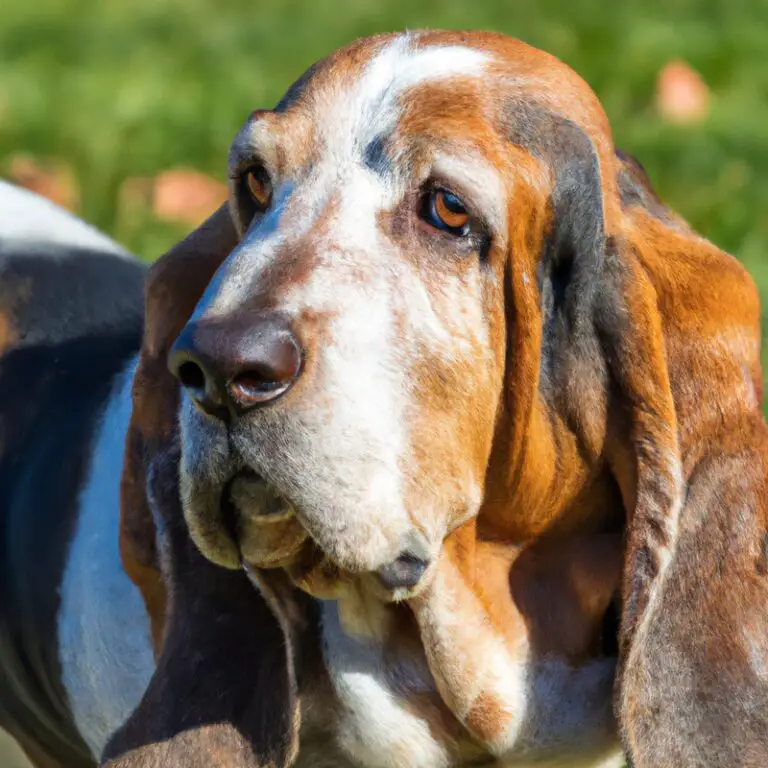What Is The Average Lifespan Of a Basset Hound?
Key Takeaways:
- The average lifespan of a Basset Hound is around 10-12 years.
- Basset Hounds tend to have a shorter lifespan compared to some other dog breeds.
- Various factors such as genetics, diet, exercise, and overall health can influence a Basset Hound’s lifespan.
- Proper care, regular veterinary check-ups, and a balanced lifestyle can help maximize a Basset Hound’s lifespan.
Have you ever wondered how long our beloved Basset Hounds typically live?
Being a passionate dog lover myself, I understand the importance of knowing the average lifespan of our furry friends.
Basset Hounds are undeniably adorable, with their droopy ears and soulful eyes, but their lifespan is influenced by various factors.
From genetics and diet to exercise and living conditions, there are numerous elements that impact their longevity.
In this article, I will delve into the factors that affect the lifespan of Basset Hounds, explore their average lifespan, and share tips on how to extend the life of these lovable companions.
Let’s dive in and uncover the secrets of their longevity!
| Lifespan | Average |
|---|---|
| Basset Hound | 10-12 years |
Understanding the Basset Hound breed
Appearance and characteristics of Basset Hounds
Basset Hounds have a distinctive appearance with their long, droopy ears, wrinkled skin, and short legs.
They have a heavy, low-set body and a deep chest.
Their loose, saggy skin gives them a unique and endearing expression.
Bassets are medium-sized dogs with a friendly and laid-back personality.
They are known for their exceptional sense of smell and are often used in tracking and hunting.
Bassets have a loving and gentle nature, making them great family pets.
Personality traits and temperament of Basset Hounds
Basset Hounds are known for their friendly and laid-back nature. They have a calm and gentle temperament, making them great family pets.
Bassets are also known to be good with children and get along well with other dogs.
They are lovable and affectionate, often seeking attention and cuddles. These dogs can be a little stubborn at times, but their sweet and patient demeanor more than makes up for it.
Basset Hounds are loyal companions who bring joy and happiness to their owners’ lives.
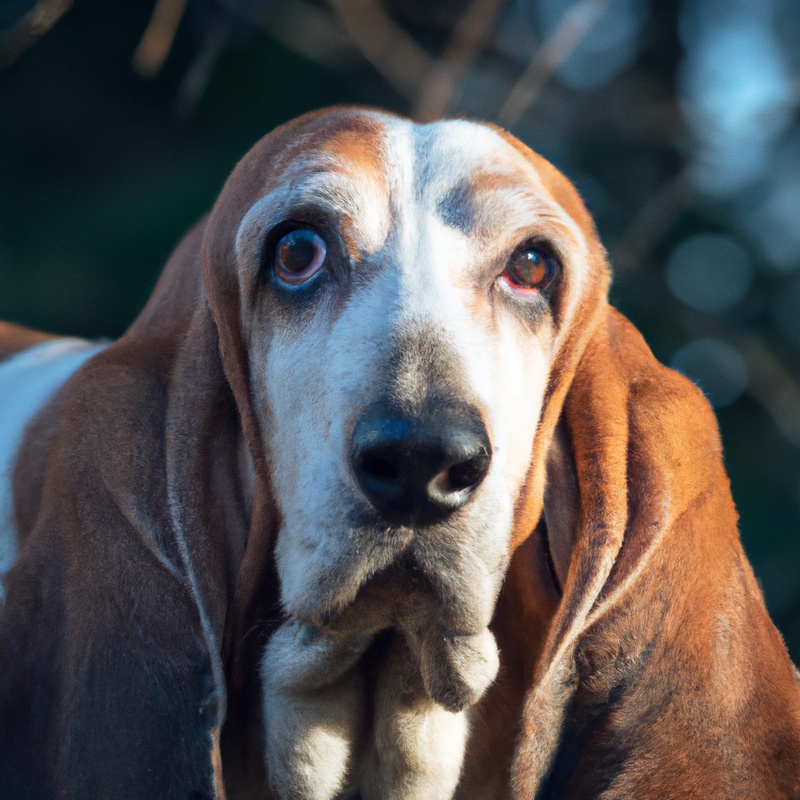
Factors affecting the lifespan of Basset Hounds
Genetics and hereditary health conditions
Genetics plays a significant role in the lifespan and health of Basset Hounds. Like all purebred dogs, Basset Hounds can inherit certain health conditions from their parents.
Some common hereditary health issues in Basset Hounds include hip dysplasia, elbow dysplasia, and ear infections.
These conditions can affect the overall well-being and longevity of the breed. It is important for breeders to prioritize genetic testing and health screenings to minimize the risk of passing on these conditions.
Regular check-ups and early intervention are crucial for managing any inherited health conditions and ensuring the best possible lifespan for your Basset Hound.
Diet and nutrition
Basset Hounds, like any other dog, require a balanced diet and proper nutrition to maintain good health and prolong their lifespan. It’s important to provide them with high-quality, specially formulated dog food that meets their nutritional needs.
Avoid feeding them table scraps or human food, as it may lead to digestive issues.
Additionally, make sure they have access to fresh water at all times. A well-balanced diet and proper nutrition are vital for the overall well-being of your Basset Hound.
Exercise and physical activity
Exercise and physical activity play a vital role in the overall health and well-being of Basset Hounds.
Regular exercise helps maintain a healthy weight, strengthens muscles and joints, and improves cardiovascular health.
Bassets have a tendency to gain weight, so it’s important to provide them with daily walks and playtime to prevent obesity.
Engaging in activities that stimulate both their mind and body, such as puzzle toys and scent work, can also keep them mentally sharp and prevent boredom.
Remember to tailor the exercise routine to your Basset’s age, size, and fitness level for maximum benefit.
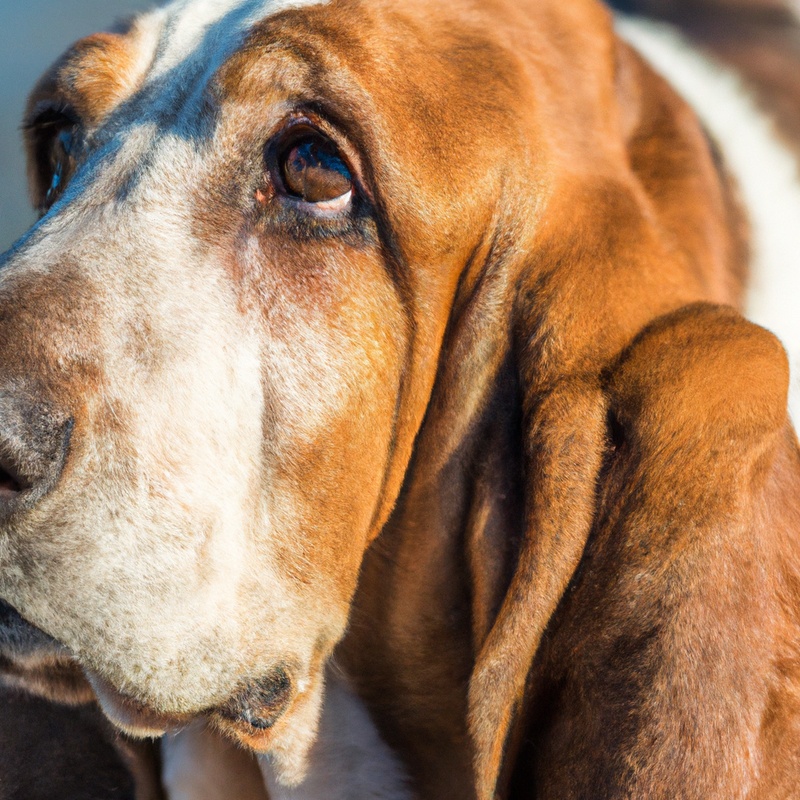
Veterinary care and preventive measures
Veterinary care plays a vital role in ensuring the well-being and longevity of your Basset Hound. Regular check-ups with a trusted veterinarian are essential.
These visits allow for early detection of any potential health issues and the implementation of preventive measures.
Vaccinations, parasite control, and dental care are all crucial aspects of preventive veterinary care. Additionally, maintaining a healthy weight through a balanced diet and exercise is important for your Basset Hound’s overall health.
Stay on top of veterinary care to give your furry friend the best chance at a long and happy life.
Environmental factors and living conditions
Environmental factors and living conditions play a significant role in the lifespan of Basset Hounds.
Providing a safe and comfortable living environment is essential for their overall well-being.
A clean and hygienic living space helps prevent the spread of diseases and reduces the risk of infections.
Additionally, protecting them from extreme weather conditions such as excessive heat or cold is crucial.
Basset Hounds thrive in an environment with ample space for exercise and play, as regular physical activity contributes to their overall health and longevity.
Average lifespan of Basset Hounds
What is the typical lifespan of a Basset Hound?
The typical lifespan of a Basset Hound ranges from 10 to 12 years. However, with proper care and attention to their health needs, some Basset Hounds have been known to live up to 14 years or more.
Genetics, diet, exercise, and veterinary care all play a role in determining a dog’s lifespan.
It’s important to provide them with a balanced diet, regular exercise, and routine check-ups with a veterinarian to ensure they live a long and healthy life.
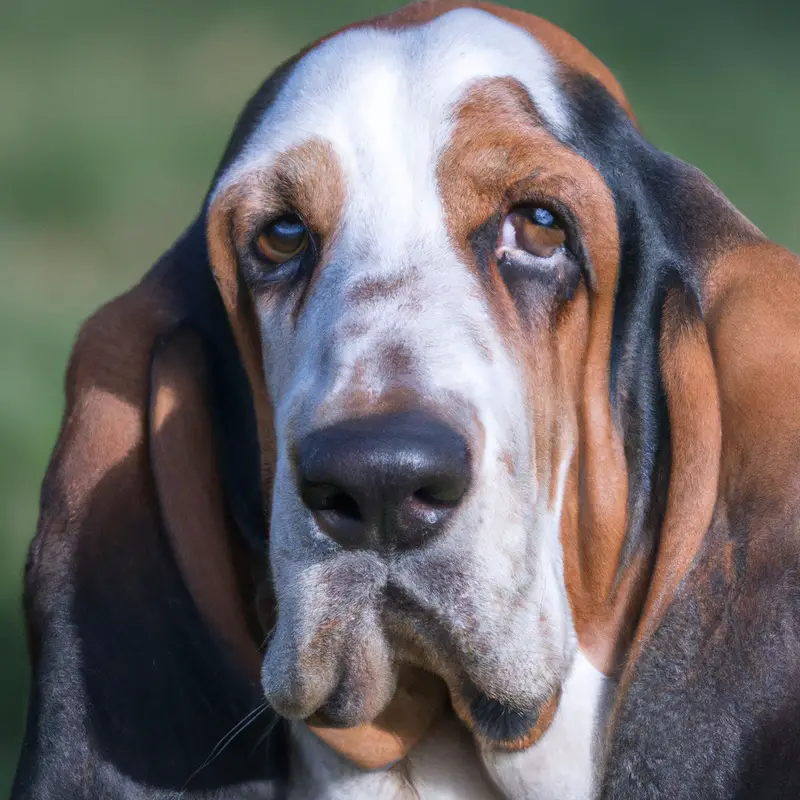
Factors contributing to a longer lifespan
A healthy diet rich in nutrients, regular exercise, and proper veterinary care are key factors contributing to a longer lifespan for Basset Hounds. Providing a balanced and nutritious diet helps maintain their overall health and prevents common health issues.
Regular exercise helps to keep them physically fit and mentally stimulated.
Regular visits to the veterinarian ensure early detection and treatment of any potential health problems. By prioritizing these factors, you can help your Basset Hound live a longer and happier life.
Factors contributing to a shorter lifespan
Factors contributing to a shorter lifespan for Basset Hounds can include genetics and hereditary health conditions. Certain genetic traits or predispositions can lead to various health issues, such as hip dysplasia or ear infections, which can impact their overall lifespan.
Additionally, a poor diet and lack of proper nutrition can have a detrimental effect on a Basset Hound’s health and longevity.
Lack of exercise and physical activity can also contribute to a shorter lifespan, as it can lead to weight gain and overall decreased fitness. Lastly, inadequate veterinary care and preventive measures, as well as unfavorable living conditions, can negatively impact a Basset Hound’s lifespan.
How to increase the lifespan of a Basset Hound
Tips for promoting a healthy lifestyle
To promote a healthy lifestyle for your Basset Hound, prioritize their well-being with these tips:
- Balanced diet: Provide them with a high-quality dog food that meets their nutritional needs. Avoid overfeeding and limit treats.
- Regular exercise: Engage in daily walks and interactive play sessions to keep them physically active and mentally stimulated. But be mindful of their short legs and tendency to become overweight.
- Mental stimulation: Keep their minds active with puzzle toys, obedience training, and socialization. Basset Hounds thrive on mental challenges.
- Regular grooming: Brush their long ears and coat regularly to prevent matting and skin infections. Also, pay attention to their dental hygiene.
- Preventive healthcare: Keep up with vaccinations, flea/tick prevention, and regular veterinary check-ups. Detecting any health issues early can lead to better outcomes.
- Adequate rest: Provide a cozy and quiet sleeping space for your Basset Hound to ensure they get enough rest.
Remember, these tips are just a starting point and may vary for individual dogs.
Consulting with a veterinarian will give you personalized advice for your Basset Hound’s health.
Importance of regular veterinary check-ups
Regular veterinary check-ups are crucial for the overall health and well-being of your Basset Hound. These check-ups allow the veterinarian to monitor your dog’s health, detect any potential issues early on, and provide preventative care.
During these visits, the vet will perform a thorough examination, check for any signs of illness or disease, update vaccinations, and provide necessary treatments.
By scheduling regular check-ups, you are ensuring that your Basset Hound receives the necessary care and attention to live a long and healthy life.
Providing a balanced diet and proper nutrition
Providing a balanced diet and proper nutrition is essential for increasing the lifespan of your Basset Hound.
A high-quality dog food that meets their specific nutritional needs is key.
Look for a brand that includes quality protein, healthy fats, and carbohydrates.
Avoid feeding them table scraps or foods that are toxic to dogs.
It’s also important to monitor their portion sizes to prevent obesity.
Additionally, provide them with fresh water at all times to keep them hydrated.
Consider consulting with a veterinarian to ensure your Basset Hound’s diet is well-balanced and meets their individual needs.
Caring for an aging Basset Hound
Signs of aging to look out for
As Basset Hounds age, there are certain signs to look out for that indicate they are getting older. These signs may include gray or white hairs on their face and muzzle, decreased energy levels, and a slower pace during walks or playtime.
They may also experience joint stiffness or arthritis, which can lead to difficulty in getting up or walking.
Additionally, their hearing and vision may start to decline, and they may develop age-related health conditions. It’s important to pay attention to these signs and provide extra care and support for your aging Basset Hound.
Adjusting exercise and activity levels for older dogs
As dogs get older, it’s important to adjust their exercise and activity levels to meet their changing needs.
Older dogs may have reduced energy levels and joint stiffness, so it’s crucial to be mindful of their limitations.
Here are a few tips for adjusting exercise for older dogs:
- Opt for shorter, more frequent walks instead of long hikes or intense play sessions.
- Consider low-impact exercises like swimming or gentle stretching to help maintain muscle strength without putting too much strain on their joints.
- Provide mentally stimulating activities, such as puzzle toys or nose work, to keep their minds sharp and engaged.
- Pay attention to any signs of discomfort or fatigue and adjust activity levels accordingly.
- Consult with your veterinarian to create a customized exercise plan that suits your older dog’s specific needs.
Remember, the goal is to keep your older dog active and engaged while also ensuring their comfort and well-being.
Ensuring comfort and mobility in senior Basset Hounds
As Basset Hounds age, it is important to ensure their comfort and mobility. Here are a few ways to do that:
- Provide a comfortable and supportive bed for your senior Basset Hound. Consider a bed with memory foam or orthopedic features to help relieve pressure on their joints.
- Keep their weight in check through a balanced diet and portion control. Excess weight can put strain on their joints and make mobility more difficult.
- Incorporate gentle exercise into their routine, such as short walks or swims. This helps maintain muscle tone and joint flexibility without causing excessive stress.
- Consider using ramps or stairs to help your senior Basset Hound navigate difficult surfaces or get in and out of vehicles more easily.
- Regularly groom your Basset Hound to keep their coat clean and free of matting. This can prevent discomfort and skin issues.
By taking these steps, you can help ensure that your senior Basset Hound remains comfortable and mobile throughout their golden years.
Final Verdict
The average lifespan of a Basset Hound typically ranges from 10 to 12 years.
However, various factors can influence their lifespan.
Genetics and hereditary health conditions, diet and nutrition, exercise and physical activity, veterinary care, and living conditions all play a role in determining a Basset Hound’s longevity.
To increase their lifespan, it is essential to promote a healthy lifestyle, provide regular veterinary check-ups, and offer a balanced diet.
As Basset Hounds age, it is important to adjust their exercise levels and ensure their comfort and mobility.
Overall, by understanding and addressing these factors, we can help our beloved Basset Hounds live their best, longest lives.

